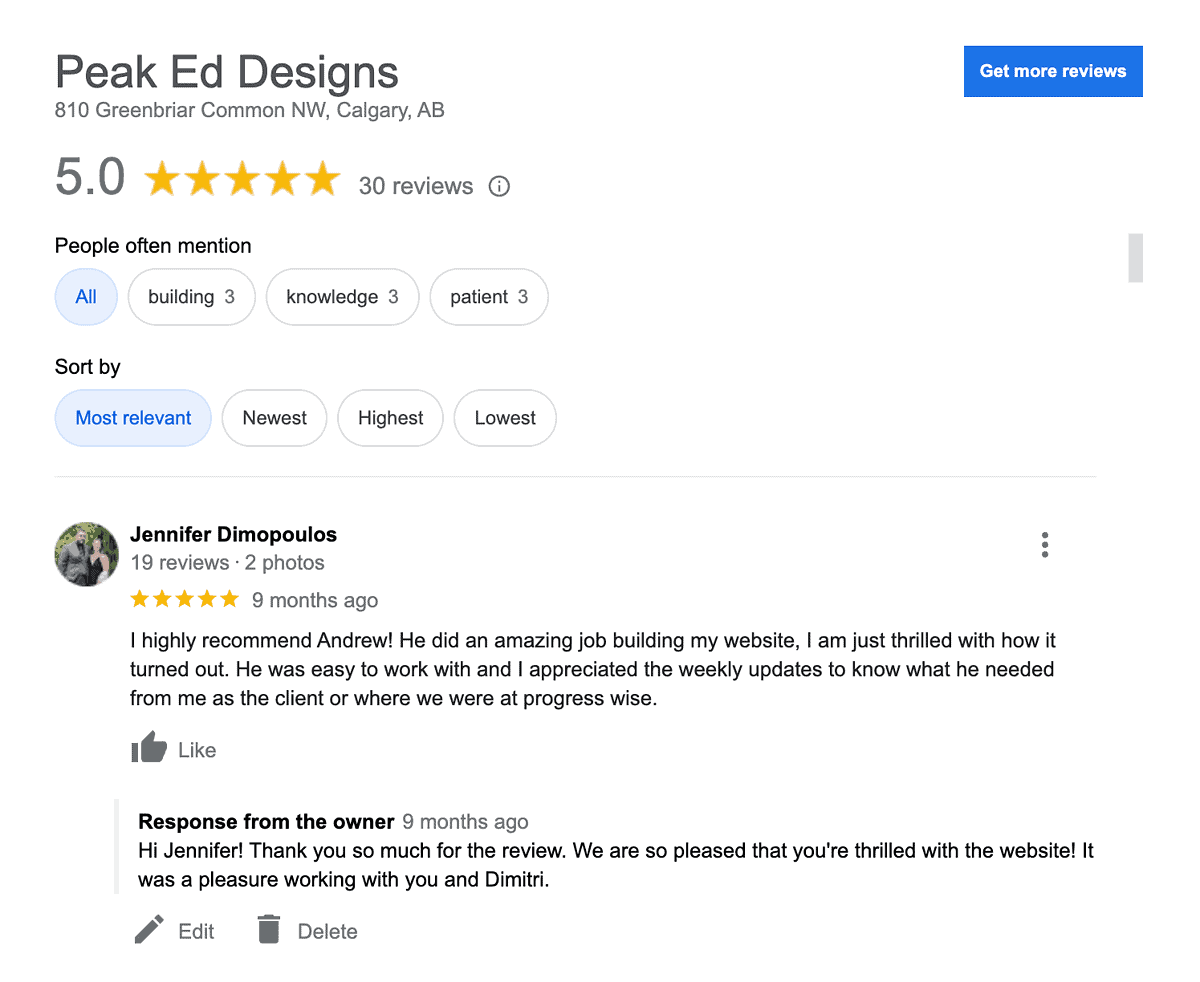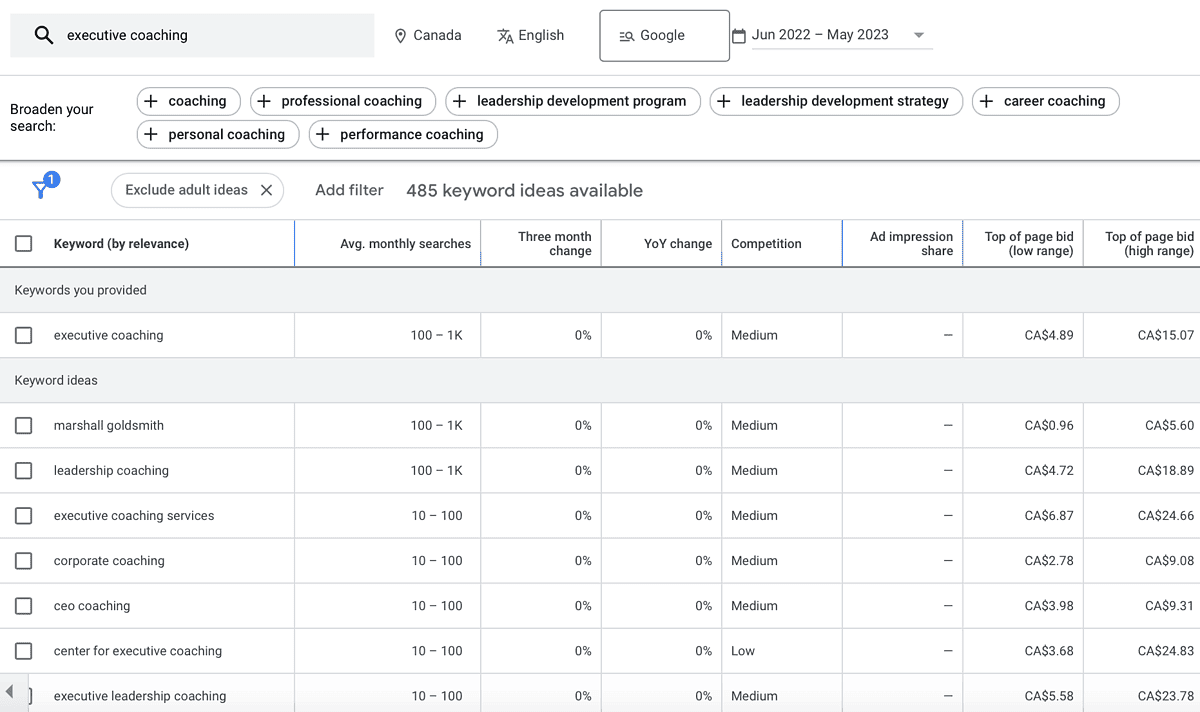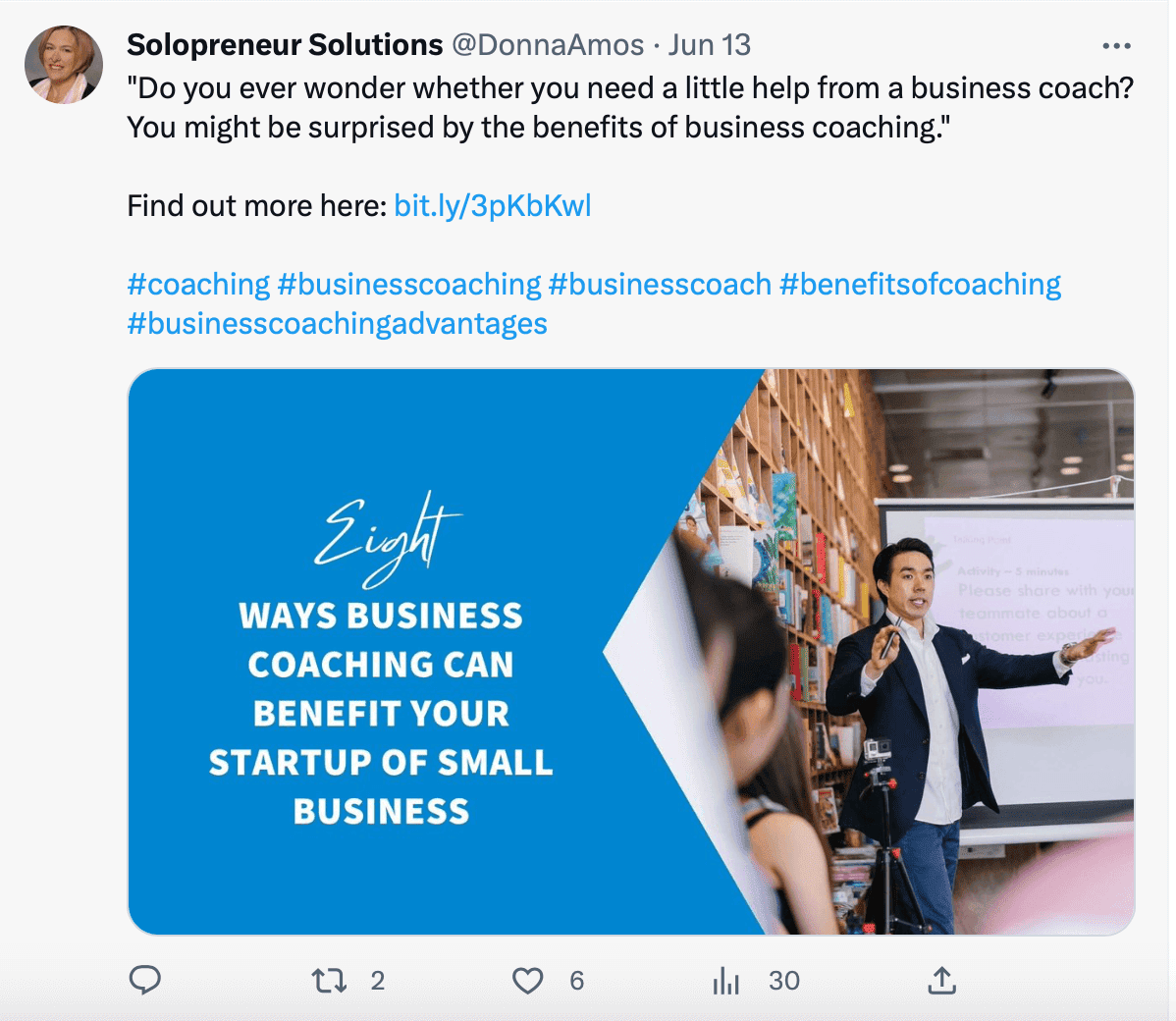Are you using target market research to connect with your potential coaching clients and customers? If not, you’re missing out on a valuable opportunity to grow your coaching business. Those who conduct target market research are better able to understand their target audience, allowing them to build better connections and ultimately strengthen their business.
Successful coaches use these six secrets to connect with their target market and boost their marketing efforts. Do you?
Table of Contents
Defining Your Ideal Customer Persona Will Improve Your Marketing Efforts
Before you get coaching clients and customers, you need leads! The most important element of lead generation is defining your target market. Failing to do so leads to wasted time and sub-par results. So, let’s dive into the three types of information that will not only help you understand your customers but also enhance your online presence.
Demographic Data
This includes quantifiable characteristics such as age, gender, income, education level, marital status, occupation, ethnicity, and geographic location. By analyzing these factors, you can precisely identify and effectively communicate with your target market. It’s like a roadmap that guides you to the right people.
Psychographic Data
Going beyond demographics, psychographic data delves into the deeper aspects of your audience’s attitudes, beliefs, values, interests, lifestyle choices, and behavioural patterns. Understanding these psychological and behavioural traits empowers you to tailor your marketing messaging and service offerings to align with their specific needs. It’s about building a genuine connection and resonating with your audience on a deeper level.
Firmographic Data
Look in the mirror. Understanding your own capabilities, goals, and constraints is just as important. In fact, in many cases, you were once upon a time (and perhaps in many ways) your ideal client. As a coach, your personal experiences and journey can provide invaluable insights into the needs and challenges of your target market. By recognizing that you share similarities with your ideal client, you can approach your marketing efforts with authenticity and empathy. Your understanding of their pain points and desires will enable you to create impactful solutions and resonate on a deeper level.
Remember, your journey as a coach is intertwined with the journey of your ideal client. Embrace your past experiences and use them as a compass to guide your marketing efforts. By combining self-reflection with a deep understanding of your target market, you’ll be well-equipped to make strategic decisions that lead to long-term success.
Analyzing Your Competitors and Industry Landscape Will Help You Define Your Place in the Market
If you’re not gaining traction with your target market, it may be because you’re failing to understand the opportunities that lie before you. When seeking lead generation, it’s important to understand where you fit in.
Identify Your Competitors
Begin by conducting a simple Google search to identify your competitors. Visit their websites. What products or services do they offer? How do they utilize web content and social media platforms to connect with their clients and customers? Which benefits, features, and areas of expertise are they highlighting?
Stay Up to Date on Industry Trends
Stay ahead of the curve by actively tracking industry trends and developments. Read relevant publications, subscribe to industry newsletters, and attend industry events. This valuable information will empower you to adapt and innovate, positioning yourself as a thought leader and a go-to resource for your target market.
Conduct a S.W.O.T. Analysis
Perform a comprehensive S.W.O.T. (Strengths, Weaknesses, Opportunities, and Threats) analysis to assess your business’s position in the market. Be honest and objective in evaluating your strengths and weaknesses. Identify potential opportunities you can capitalize on, as well as threats that may impact your growth. This analysis will serve as a foundation for your strategic decision-making and help you refine your competitive advantage.
By understanding your competitors and the industry landscape, you can identify gaps and differentiate your coaching business effectively. Leverage this knowledge to fine-tune your marketing strategies, enhance your offerings, and provide unique value to your target market.
Customer Feedback Can Boost Lead Generation Efforts
A valuable source of information exists at your fingertips in the form of your existing customers and clients. What do they really want? How are you meeting their needs? What else do they wish you provided? Understanding your current customers and clients will help you identify new leads and market to them effectively.
How Can I Collect Customer Feedback?

Want to know what your current coaching clients and customers think? Simply ask them! Surveys, interviews, and reviews are all useful data collection tools.
- Surveys: Create well-crafted surveys to gather feedback from your current coaching clients and customers. Keep the surveys concise, focusing on key aspects you want to assess. Make sure to ask open-ended questions to encourage detailed responses. Online survey tools, such as SurveyMonkey, Typeform or Google Forms, can simplify the process and provide insightful data.
- Interviews: Conduct one-on-one interviews with your clients to delve deeper into their experiences and gather more nuanced feedback. Personal interviews allow for in-depth conversations and the opportunity to explore specific topics in detail. Schedule interviews with a diverse range of clients to capture a broader perspective.
- Reviews: Encourage your clients to leave reviews and testimonials on platforms such as Google, LinkedIn, or industry-specific review websites. Positive reviews serve as social proof and can attract new clients. Pay attention to both positive and negative reviews, as they provide valuable insights for improvement.
- Non-customer feedback: Don’t overlook the value of gathering feedback from your target market who haven’t yet become customers. Conduct interviews, host focus groups, or distribute surveys to gain insights into their needs, preferences, and perceptions. This data will help you refine your offerings and tailor your marketing messages to better attract your ideal customers.
⭐ Bonus: Positive customer feedback can be used in marketing campaigns. Testimonials and customer satisfaction statistics that shine a positive light on your coaching business can be shared on your website and social media channels. This social proof will go a long way toward converting future leads into paying customers and clients.
“Facts tell but stories sell”
– Bryan Eisenberg
Social Listening and Monitoring Can Provide Insight On Your Target Market
Social media platforms and chat boards are great places to gain insight on your potential customers. 61% of businesses now report having a social listening program in place. Your competitors are reading comments and posts every single day, are you?
Firstly, social media provides a platform for individuals to express their thoughts, opinions, and concerns openly. By monitoring discussions related to your industry or coaching niche, you can identify common pain points and frustrations that your potential customers are experiencing. This valuable information allows you to tailor your messaging and offerings to directly address their needs and challenges. By demonstrating that you understand their concerns, you build credibility and trust with your audience. you’ll be able to understand their pain points and frustrations.
Secondly, social media platforms offer an opportunity for you to actively participate in conversations relevant to your coaching business. By engaging with your target market, you can share your expertise, offer valuable insights, and provide solutions to their problems. Actively participating in discussions not only establishes you as an authority in your field but also helps you gain visibility and exposure to a wider audience. It’s a chance to showcase your knowledge, build relationships, and attract potential customers and clients who are seeking guidance and support.
To effectively engage in social listening and monitoring, consider using social media monitoring tools like Hootsuite, Sprout Social, or Mention. These platforms enable you to track mentions of your brand, industry keywords, and relevant hashtags, allowing you to stay updated on conversations happening across various social media channels.
Keyword Research Helps Search Engine Optimization
Are you tired of seeing your competitors displayed on the Google results page, while your website is buried beneath an avalanche of rubbish? Search Engine Optimization is the answer and one of the most important aspects of SEO is determining which words and phrases your target customers are most likely to use in their search queries.
Three Steps for Utilizing Keywords

SEO is a fairly involved process, but it’s a critical aspect of lead generation. The following three steps will get you pointed in the right direction:
- Use a keyword research tool such as Google Ads or SEM Rush to find out which search queries are used most regularly. Start with obvious terms such as ‘business coaching’ or ‘executive coaching’ and expand your search outwards from there. These tools will also provide information on how competitive these terms are, helping you identify opportunities.
- Boost your organic SEO by creating content that utilizes these words and phrases (Chat GPT can help). Not only will you be providing value to your target market, but you’ll be sending a clue to Google about the nature of your site.
- Start a pay-per-click campaign and bid on the keywords. Now that you understand what words are being searched, consider a Google ads campaign aimed at your target market. Google will display your ad to people who search for the terms you specify. Yes, it will require some budget, but it can be a valuable way of finding the exact people who are in need of your services. It’s been reported that 65% of people click on a Google ad when making a purchase.
A Customer Persona Can Help Generate Leads
Remember, it’s all about connecting with your target market: providing services they need, sharing content that addresses their pain and problems, and using the language they use. It can be helpful to create customer personas that describe the different target markets you find relevant.

What’s a Customer Persona?
‘Linda’ is retired, seeking inspiration, on a fixed income, and spends time on Facebook. ‘Angelo’ is a young, affluent professional who is ambitious but overwhelmed, and can be found on LinkedIn. Picture these theoretical leads as actual people when drafting a marketing campaign.
It may sound a bit far-fetched, but big corporations do it, and so do political parties. Why aren’t you utilizing this process?
Learn how to create your character persona in ChatGPT using the prompt templates feature by Keywords Everywhere.
Getting Started
At PeakEd Designs, we are dedicated to our customers and believe in our customers’ businesses and we want to help them reach their full potential. That’s why we specialize in developing impactful websites and marketing campaigns that drive results. Our websites not only exude professionalism but also prioritize user experience to maximize lead conversion.
As a coach, you need a website. Our expert copywriting and content strategy effectively communicate your unique value proposition and resonate with your target market.
With our comprehensive maintenance program, your website will always be in top-notch condition, ensuring uninterrupted functionality. Additionally, our Google Ad campaigns consistently expose you to new leads.
Take the first step towards business growth today. Contact Peak Ed Designs and share your story with us. We will tailor a customized plan to suit your specific needs, enabling you to connect with your target market, generate valuable leads, and propel your business forward.

Hi! I hope you enjoyed reading this blog post.
If you want my team at Peak Ed Designs to up your digital game and take your business to the next level, just book a call.
Book a Call
